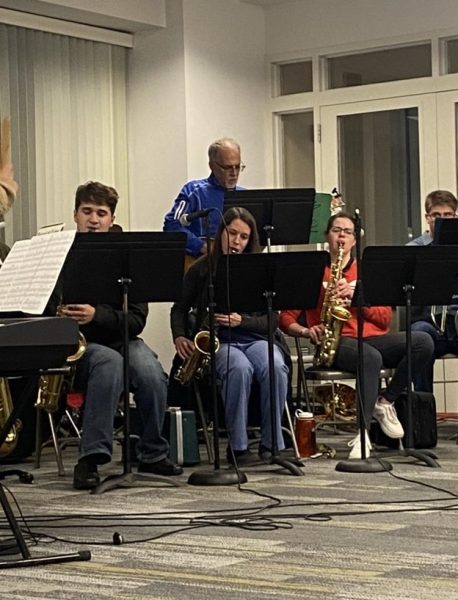Safety Officers Train to Fight Opioid Emergencies
November 8, 2018
Campus Safety are adding procedures and equipment in the fight against opioid abuse.
Bob Zavada, Director of Campus Safety and Security, and other Campus Safety staffers received training in the use of Narcan, which is an opioid reversal drug, Zavada said.
Narcan was supplied free of charge to all area college and university security departments, courtesy of the Luzerne County District Attorney’s office.
Staffers were not only trained to administer the drug, but they also learned the signs of opioid overdose.
Officers are regularly updated on life-saving procedures, such as CPR, Zavada said.
If 9-1-1 is called for an emergency for someone on campus, security officers are still the first to arrive on scene.
When officers go on patrol, they carry trauma bags, which contain Narcan. Safety officers are first on the scene if someone on campus calls 911, and having Narcan on hand makes the emergency response more effective for first responders.
“A police officer would never have to go back to their car to get Narcan if we were faced with an opioid situation,” said Zavada.
At times, Narcan must be administered more than once, so officers carry a few Narcan units in their trauma bags.
Zavada said CPR masks, tourniquets, glucose packs and many other items have been added to the officers’ emergency bag.
Zavada said Campus Security is fortunate to have the Back Mountain Regional Ambulance as well as local police stationed nearby, making it easier for aid in emergency situations.
Officers must also be aware that opioid overdoses are not always caused by recreational use but also from misuse of prescription medications.
Campus Security officers must be on alert at all times, Zavada said.
“It could be an overdose situation in a group. You would typically not think of that. It is not just on the streets,” said Zavada.
As a result of a review of medical emergencies and internal responses on a central reporting system, officers created a tailor-made trauma bag to address issues of the past for the future.
Trauma bags are important for campus first responders in moments where every second counts, because they can administer treatment before other emergency crews arrive, he said.
Officers can also communicate with ambulance crews, relaying information such as vital signs and what they may need for the situation.
“If we have someone who is dropping real low with blood pressure, we could radio them to let them know what they are getting into,” said Zavada.
He said the opioid procedures paid off, because they made people focus on the deadly issue.
“I think it was very beneficial people learned this procedure because it raised awareness that the opioid crisis is actually happening in our community,” said Zavada.
Zavada said no one is immune from developing an opioid addiction. College students, elders or even veterans have an even chance of getting hooked.
“It does not see any boundaries for any socio-economic class, any walk of life can experience this,” said Zavada.
Officiers have used the new medical procedures and the trauma bags have been deployed on emergency scenes.
Zavada said quick response greatly benefitted an injured person.
“We were able to stop bleeding with bandages before the ambulance even got here, and that was a good thing.”
Zavada said campus is usually free of serious events.
“But the potential is always there,” he said.
Narcan has not yet been administered for any emergency, Zavada said.









